BENTON — On a piece of land no other farmer wanted, Ben Rooney is anticipating his most bountiful crop yet.
The clay soil that covers the land off Wyman Road — known by locals as “Clinton clay” — is not good for growing much of Maine’s traditional crops, such as blueberries, or even for putting animals out to pasture.
But it is good for growing rice in paddies, eight of which take up a couple of acres on the farm.
This is Rooney’s second year of growing rice at a larger scale, and the fifth year since he started the experiment.
Rooney knows of another woman who grows rices for Fedco Seeds, a cooperative seed company based in Clinton, but there aren’t many other rice farmers in Maine. Of those who do grow rice in the state, none grow it at the scale of Wild Folk Farm.
MAINE SOIL, ASIAN TRADITION
Rooney, 29, is originally from Evanston, Illinois, outside of Chicago, but studied biology and environmental science at Colby College in Waterville.
While there, he met David Gulak, 36, who was then the manager of Barrels Community Market, a co-op and natural foods market that sold produce from local farms. Rooney set up a volunteer program at the store, which has since closed.
After finishing an apprenticeship on a farm in Blue Hill, Rooney had spent time in the winters farming in Zimbabwe and out West, but he kept coming back to Maine, he said.
“I just fell in love with growing food in the state,” he said.
He started to work with Gulak, who owns the land but said he likes to think of it in a more communal way. While traveling, Rooney was inspired to try rice farming at Wild Folk Farm, realizing that its clay soil would work with the paddy system perfectly.
The farm, which totals 45 acres, much of which is forestland, is at the end of a dirt and gravel road. Saturday afternoon, shoes and socks were littered around the paddies as volunteers waded into the shin-deep water to transplant seedlings. For a moment, a Maine farm straddling Benton and Clinton appeared as though it were transported from Vietnam, with people stooped over in the shallow pools, dropping seedlings in as they moved along the rows.
From mid-April to right around now, Rooney keeps the seedlings floating in water in the greenhouse, where they’re kept warm. Azolla is put in the greenhouse as well, and then moved to the paddies. The companion plant prevents weeds from sprouting and contains cyanobacteria, which fixes the nitrogen levels in the atmosphere.
When the seedlings are ready to be transplanted, Wild Folk Farm holds a party and invites the community to help. Work started around 10 a.m., followed by lunch and a tour. The farm also planned a dinner, music and a 7 p.m. bonfire.
In optimal conditions, it takes four people and two hours to transplant to a single paddy, Rooney said.
Starting in mid-July, the tillers, or the shoot that comes out of a plant, will go up and grow grain heads, which will begin to fall in August. Then they hold another party to harvest the grain in the early fall.
The Maine Grain Alliance, nonprofit based in Skowhegan that works to preserve grains and the traditions that come along with them, has partnered with the farm to lend its nonprofit status, said Richard Roberts, a member of the alliance’s executive board who was at the transplanting event Saturday. The alliance also has lent the farm harvesting and other equipment.
“I think it’s great,” Roberts said of the idea to create paddies in central Maine. “This is probably one of those places that nobody wants.”
Rooney also isn’t done experimenting. He won a SARE grant for sustainable agriculture research and education from the U.S. Department of Agriculture, which he’s using to test sowing clover along with the rice in three paddies so they don’t have to flood it with water.
FARMING FOR FOOD SECURITY
Last year, in the farm’s first full-scale season of growing rice, the paddies yielded about 2,500 pounds, Rooney said. About one-third of what they planted was lost because of the drought and sparrows.
The farm sold 1,000 pounds for seed, Rooney said, which is an exciting part for him. He wants to help and encourage the decentralization of food production across the country.
Now is the right time to start experimenting with things such as rice paddies, he said, especially in Maine. The temperature is rising, making it easier to grow the plant in a state known for its chilly weather, and an acre of rice seedlings yields much more than an acre of wheat, he said.
And, unless there’s an earthquake, the paddies aren’t going anywhere.
“I feel very strongly that paddies are very good for Maine’s food security,” Rooney said.
The farm even has proved that rice farming can work through a New England drought, he said.
“It was tricky,” though, he added, especially because it was their first year at this scale, and “everything changes with scale.”
But Rooney is focused on continuing to experiment with the farm and see what works. Rooney and Gulak follow a model of permaculture rather than the modern-day farming model, which is about injecting chemicals into the process, Gulak said.
Instead, Rooney works with the land to create a sustainable and self-sufficient farm that tries to unlock and use the nutrients hidden in the clay soil. With a permaculture model, farmers have to mulch and compost a lot more up front, Gulak said, but the end result is fairly weed-free.
Gulak, who is from Harpswell and bought the property 12 years ago for its price and proximity to Fairfield, said they’re excited that they’ve found something that can help a lot of people.
“There’s a lot of people with a lot of clay soil who don’t know what to farm on their land,” he said.
‘WE REALLY HAVE TO DIVERSIFY’
The unique nature of their venture is also good timing, said Gulak, who acts as the business partner while Rooney is the farm manager.
“There are a lot of new farms in central Maine,” which is great, he said, “but a lot of markets are getting really tapped out.”
That’s one of the reasons Wild Folk Farm canceled its CSA, or community supported agriculture, program this summer. They didn’t receive the amount of interest they were anticipating, he said.
“We realized a few years ago, we really have to diversify,” he said.
Rice is also a less perishable product, which allows them to sell it all over the world, and they do. The bulk of it still goes to Mainers, though, he said.
Rooney also is cultivating seeds to sell that have higher germination rates than those from the government, Gulak said, partially because he’s cultivated varieties specific to the state and its climate.
The pair are also passionate about community, Gulak said, which rice lends itself to very easily. While it’s labor-intensive, the bulk of the work is done in a targeted period of time, which is when they host parties and community gatherings.
Without that volunteer labor from the farm’s annual parties, it might not be profitable, Gulak said. If the paddies were maxed out and they grew 6,000 pounds of rice, they would make $40,000 or less, he estimated.
That’s better than wheats or oats, given the size of the farm, he said.
“We also have to remember, this is income from the part of the farm that we wouldn’t even be able to use,” he said.
Madeline St. Amour — 861-9239
mstamour@centralmaine.com
Twitter: @madelinestamour
Copy the Story Link
Send questions/comments to the editors.


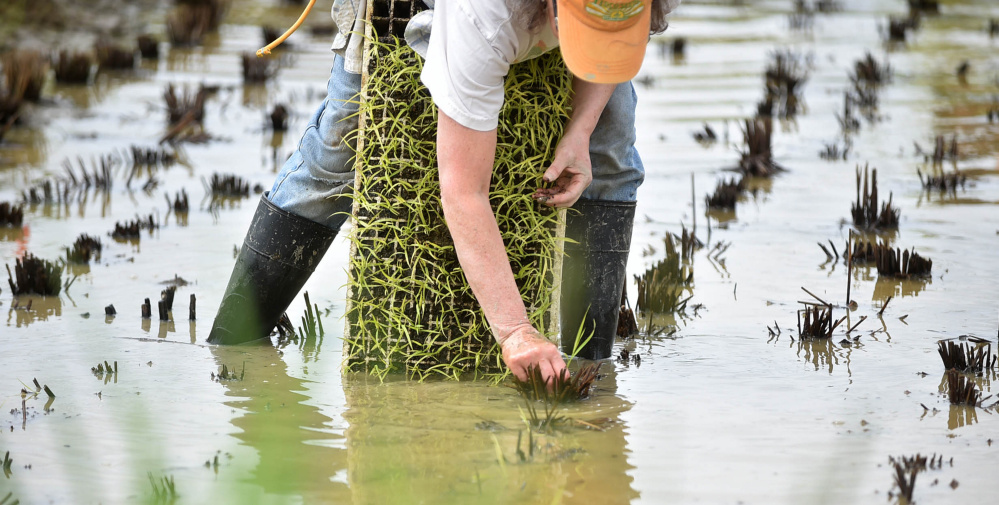
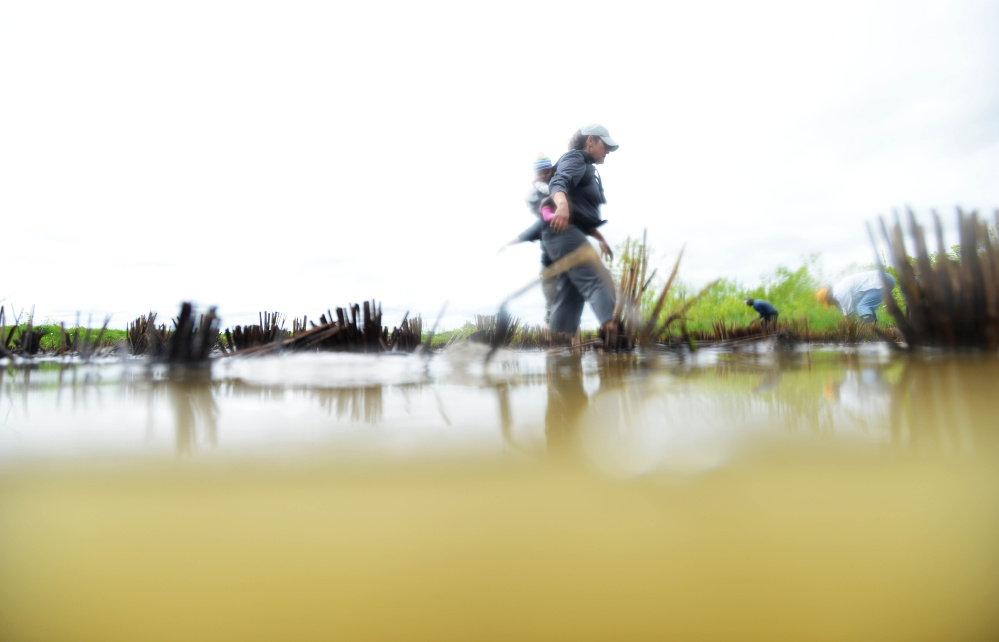
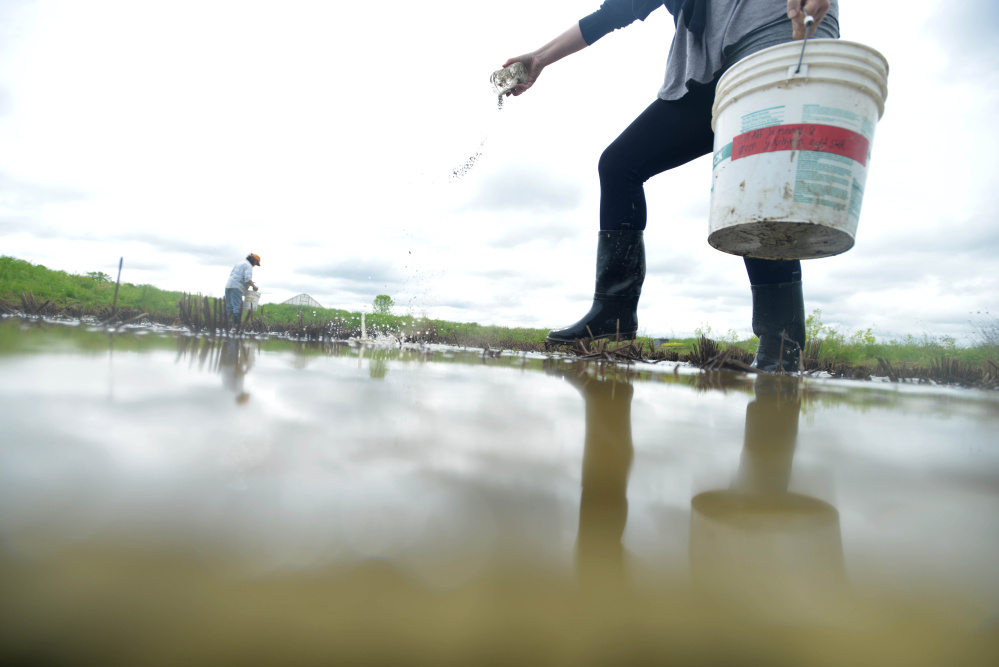
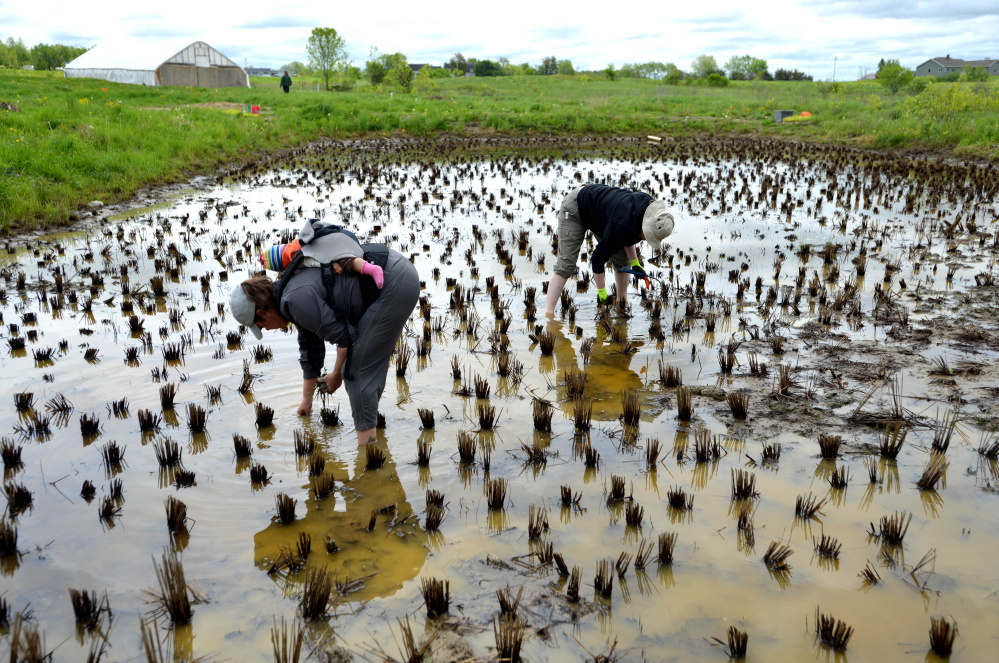
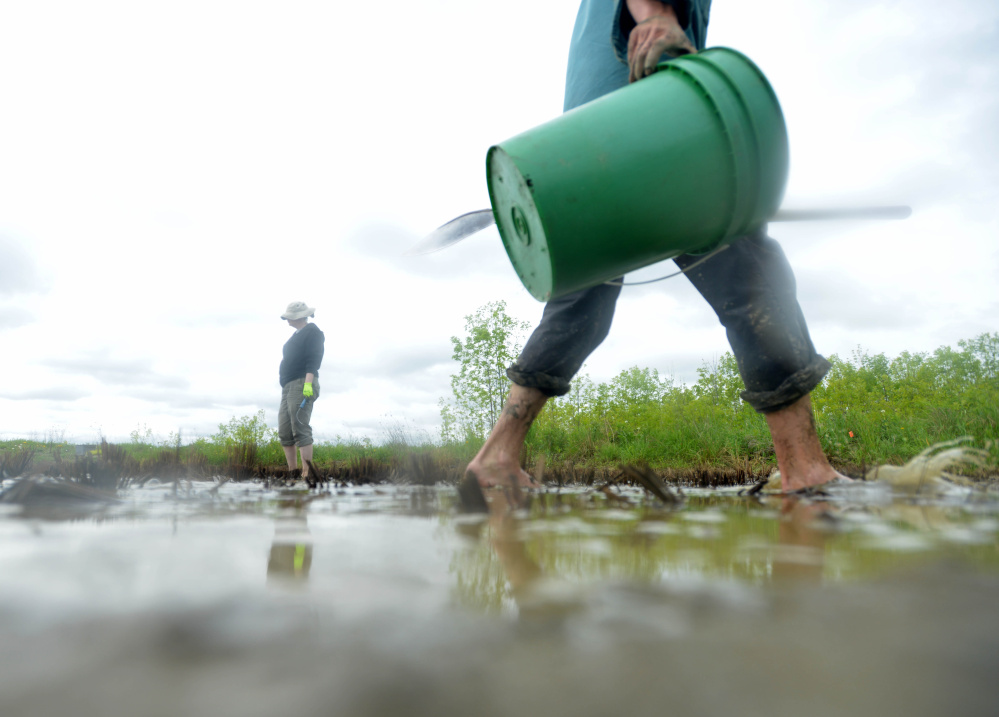
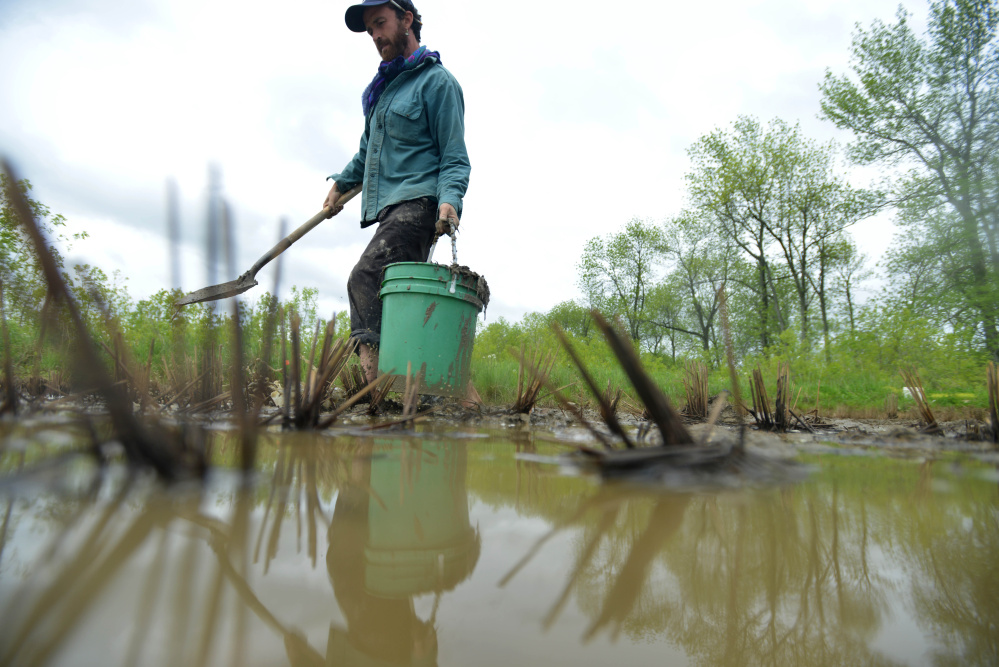
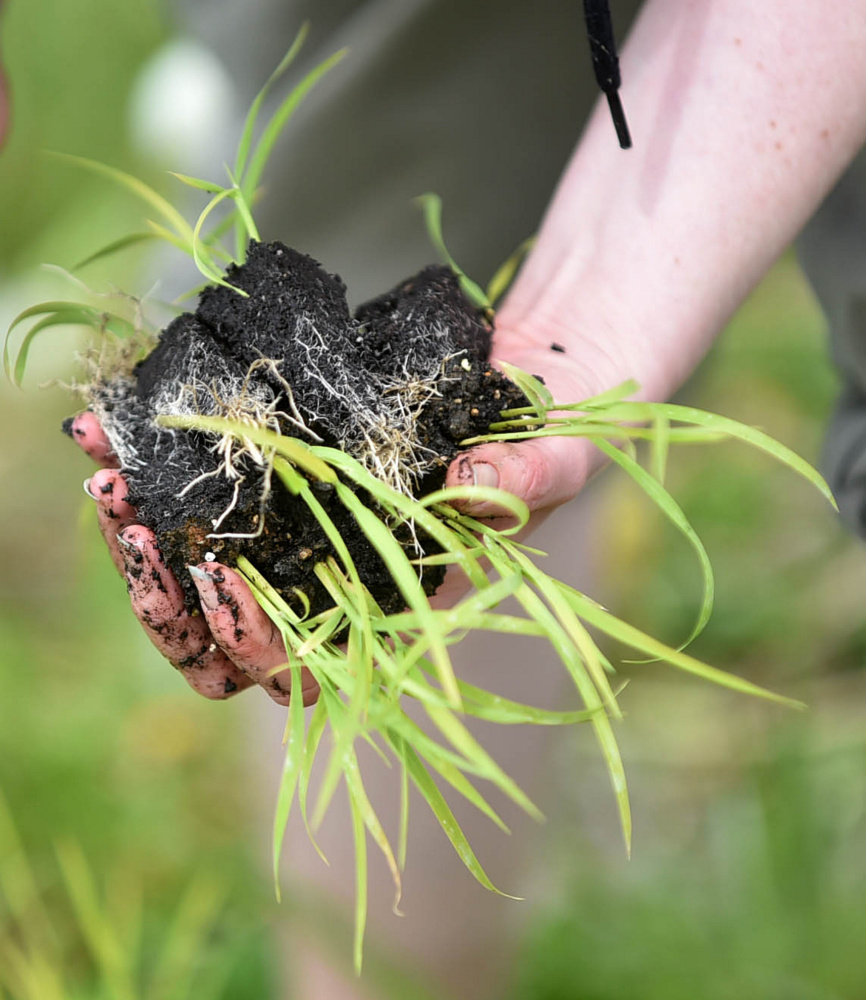
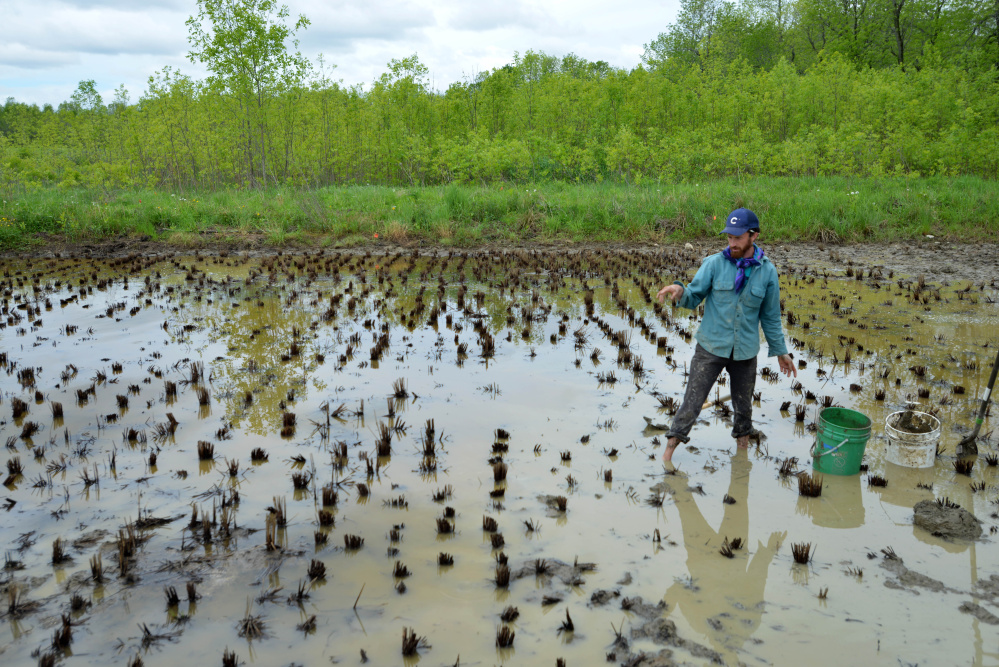
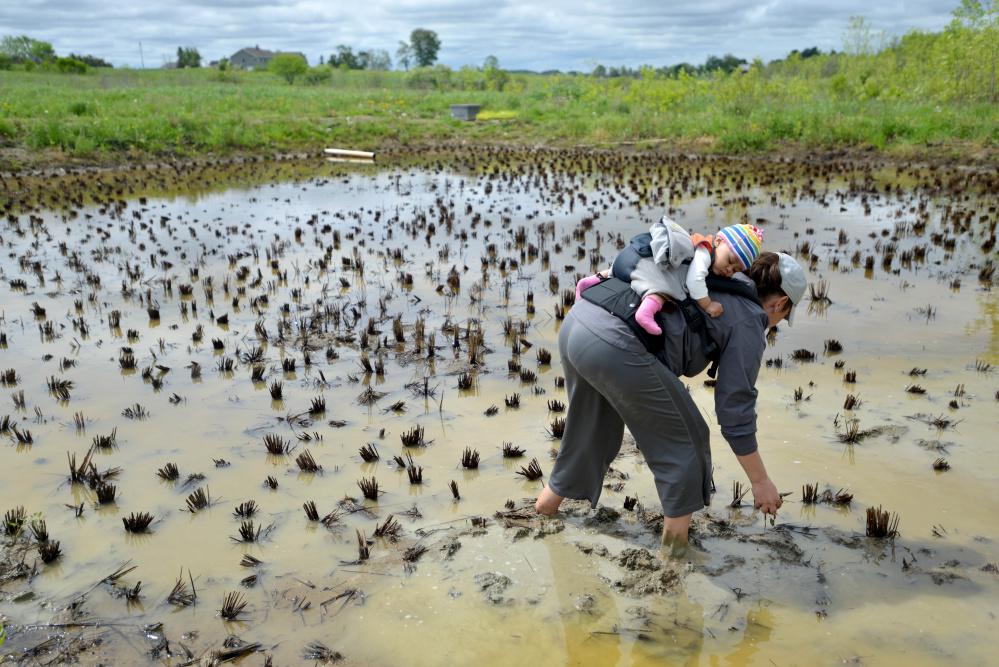
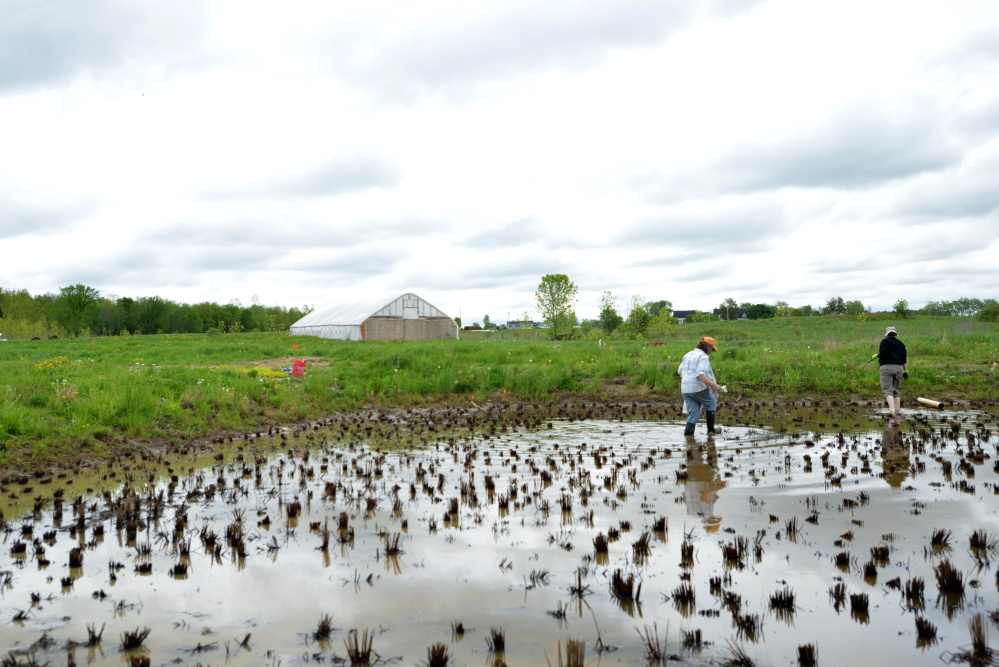
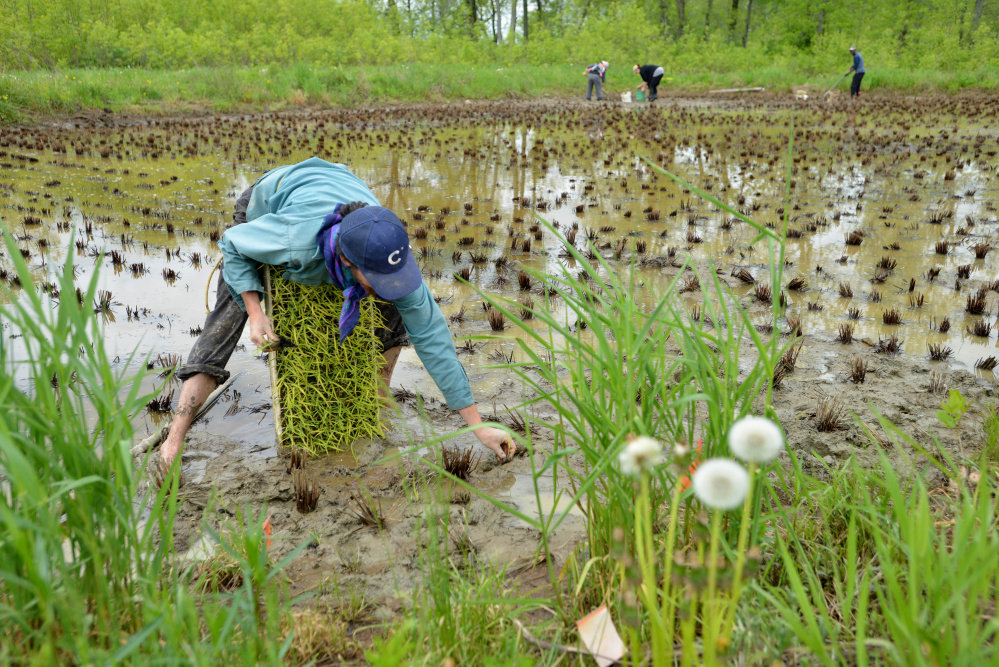
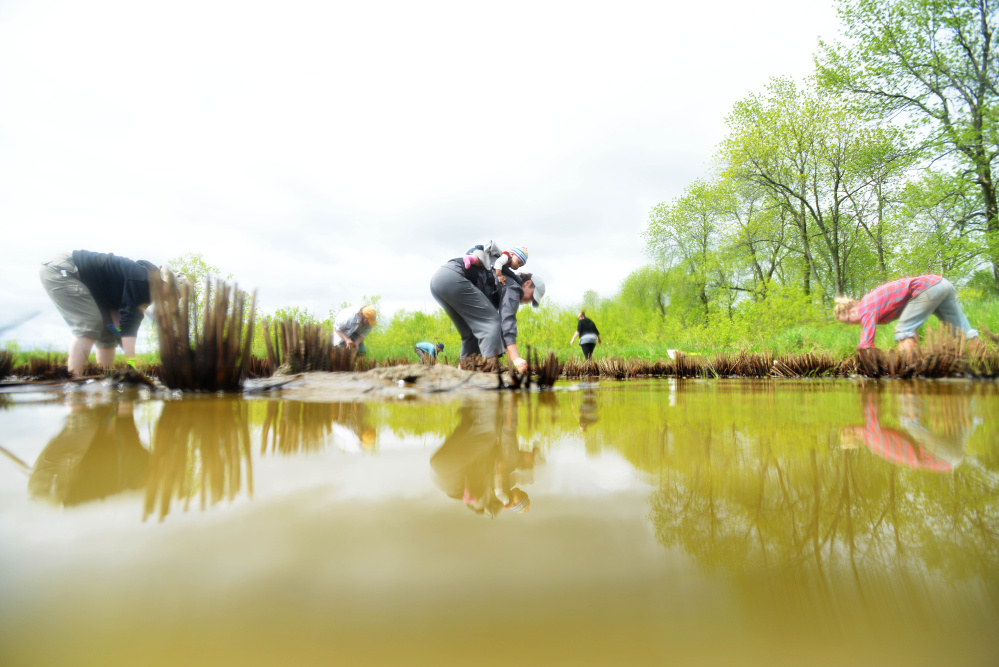

Success. Please wait for the page to reload. If the page does not reload within 5 seconds, please refresh the page.
Enter your email and password to access comments.
Hi, to comment on stories you must . This profile is in addition to your subscription and website login.
Already have a commenting profile? .
Invalid username/password.
Please check your email to confirm and complete your registration.
Only subscribers are eligible to post comments. Please subscribe or login first for digital access. Here’s why.
Use the form below to reset your password. When you've submitted your account email, we will send an email with a reset code.